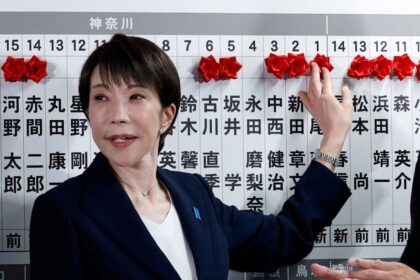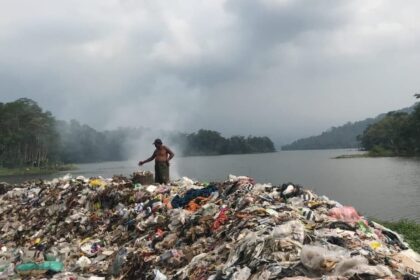Nepal and Malaysia at odds over new recruitment rules
Nepal has formally informed Malaysia that it will not apply a new set of recruitment standards Malaysia wants source countries to use when selecting manpower companies. In a diplomatic note sent via Nepal’s Ministry of Foreign Affairs, officials said the 10 point criteria set by Malaysia fall outside Nepal’s current legal and regulatory framework. The government asked that any changes affecting labor migration be discussed through bilateral channels and grounded in existing agreements and international norms. The move sets up a sensitive negotiation between two countries linked by one of Asia’s largest migrant worker corridors.
- Nepal and Malaysia at odds over new recruitment rules
- What Malaysia proposed
- Why Nepal said no
- Could the new standards concentrate market power?
- How this fits into years of reform efforts
- What happens next
- Risks for workers and employers if talks drag on
- What a workable compromise could look like
- What to Know
Malaysia recently circulated uniform standards to five major source countries, including Nepal, with a deadline for agencies to submit details by mid November 2025. The new criteria aim to narrow and vet the list of recruitment firms that can send workers to Malaysia. Nepal’s Ministry of Labor, Employment and Social Security said it cannot recommend manpower companies under the new terms without legal changes at home. The ministry also flagged worries raised by agencies that the standards could favor a few large firms, potentially limiting competition and driving up costs that often fall on workers.
The decision aligns with instructions from Prime Minister Sushila Karki, who currently oversees both labor and foreign affairs. Officials say Kathmandu is preparing talks with Malaysia’s acting ambassador and a joint technical working meeting to find a path that improves transparency without breaching Nepal’s rules. The government has also signaled a fresh push to address high fees and other recruitment abuses faced by Nepali workers heading to Malaysia.
What Malaysia proposed
Malaysia’s 10 point proposal sets minimum thresholds for recruitment companies that want to place workers in its labor market. The list includes a requirement that agencies have held a valid license for at least five years, sent at least 3,000 workers over a recent multiyear period, and maintained operations that extend beyond one destination. Firms would also need to show they placed workers in at least three countries over five years, maintain a large physical office space of about 10,000 square feet, and possess training and evaluation permissions where relevant.
The proposal adds integrity checks. Company operators would need a certificate of good conduct, and firms must show they have not been involved in forced labor, human trafficking, labor law violations, currency embezzlement, or other economic crimes. Malaysia asked governments of the listed source countries to submit recommended agencies that meet the standards, creating a curated roster for Malaysian employers seeking migrant labor.
In practice, the system would centralize screening to a smaller pool of agencies with scale, footprint, and clean records. The stated goal is stronger oversight and a reduced risk of exploitation across recruitment chains. For Malaysia, which relies heavily on migrant labor in manufacturing, plantations, services, and construction, better controls are seen as part of a broader effort to curb abusive practices and meet global expectations on labor rights.
Why Nepal said no
Nepal’s labor authorities argue they cannot implement the Malaysian template without changing laws and procedures that govern foreign employment. Agencies in Nepal operate under the Foreign Employment Act and a web of regulations, bilateral labor agreements, and constitutional provisions. Officials say that any new filter that predetermines which Nepali firms can supply workers to Malaysia must be anchored in a bilateral understanding that sits within Nepal’s legal system. A unilateral shift, they argue, could clash with domestic licensing rules, dispute mechanisms, and oversight structures already in place.
Officials also stress the priority of transparent and fair recruitment. Nepal has spent years trying to reduce costs for workers, strengthen ethical standards, and create clearer pathways for safe migration. Authorities warned that applying a foreign government’s private selection criteria could reshape Nepal’s market without the safeguards of joint governance. Kathmandu has requested technical talks and higher level engagement to align goals, including worker welfare and employer needs, with a framework both sides can administer.
Could the new standards concentrate market power?
Nepali recruitment firms have argued that Malaysia’s list favors large agencies that already place high volumes of workers and maintain multiple country operations. Requirements like a large office footprint and a five year track record can be difficult for smaller firms, even if their compliance record is solid. Associations representing foreign employment agencies in Nepal warn that the rules could create a narrow corridor that rewards a handful of companies while sidelining others that have invested in ethical practices but lack scale.
Some industry leaders also worry about indirect costs. If the pool of eligible recruiters shrinks, bargaining power could tilt toward larger intermediaries. Employers in Malaysia might face fewer competing offers from recruiters, and smaller Nepali firms could be forced into subcontracting arrangements that add layers to the chain. In many corridors, extra layers often mean higher service charges and fees. Even when rules say workers should not pay recruitment costs, those expenses can reappear through hidden charges unless tightly policed by both sending and receiving states.
Concerns about potential monopolization gained traction after earlier disputes over new intermediaries and fee collection models in the Malaysia corridor. Industry groups in Nepal have pushed back on arrangements they see as giving private entities special privileges over worker processing and employer demand. The government has signaled that any restructuring must avoid creating bottlenecks or exclusive control points that could reduce competition and transparency.
How this fits into years of reform efforts
For more than a decade, Nepal and Malaysia have tried to make the corridor safer and cheaper for workers. In 2018, the two governments signed an agreement aimed at reducing or eliminating recruitment fees charged to workers and promoting safer hiring in line with International Labour Organization guidance. The principle often described as employer pay has gained ground in global debates, especially for low wage migrants vulnerable to debt and deception. While both countries took steps that echoed international norms, enforcement has been uneven and loopholes persisted.
Academic and policy studies on the Nepal to Malaysia route describe a dense network of intermediaries and subcontractors who translate policy into practice. These actors connect workers to employers, handle paperwork, provide training, and sometimes channel unofficial payments that make recruitment more expensive. Even with licensing and fee ceilings, gaps in enforcement have allowed unfair charges and misleading job terms to continue. Investigations into conditions in Malaysian industries, including medical gloves during the pandemic, highlighted how pressure on costs and weak oversight can trap workers in debt and limit their ability to change jobs or report abuse.
International rules provide a partial blueprint. Malaysia has adopted the Employment Service Convention C88, while both Nepal and Malaysia have integrated elements of the Private Employment Agencies Convention C181 into domestic law without ratifying it. These conventions promote public oversight of employment services, licensing and monitoring of private agencies, and protections against fees that shift costs to workers. The challenge has been translating these standards into daily practice across borders and complex supply chains.
The scale of migration underscores the stakes. Malaysia hosts millions of migrant workers from Indonesia, Bangladesh, Myanmar, Nepal, and other countries. Nepali workers fill roles in factories, services, and plantations, and their remittances support families and the national economy at home. Efforts to clean up recruitment are not just technical compliance problems. They shape indebtedness, safety, wages, and mobility for people who often take on loans to secure overseas jobs.
What happens next
Kathmandu has called for a joint technical working committee and high level talks with Malaysia’s representatives in Nepal. The immediate task is to compare legal frameworks, identify where the Malaysian criteria collide with Nepali rules, and design a selection process that both sides can administer. Nepal’s Ministry of Labor has also gathered feedback from recruiting agencies on the Malaysian proposal. That consultation may help shape Nepal’s position in talks and suggest possible middle ground on screening and compliance checks.
Malaysia set a mid November 2025 timeline for agencies to submit their data under the new standards. Nepal’s refusal to nominate companies under that format puts the onus on bilateral diplomacy. Both sides have an interest in keeping the corridor open. Malaysia depends on steady inflows of labor, and Nepal wants predictable, safe channels that do not saddle workers with heavy debts or long delays. Officials in Kathmandu say worker welfare and security will guide any discussion of new rules, alongside the need to ensure that Nepali law and bilateral agreements remain the basis for decisions.
Risks for workers and employers if talks drag on
If the two governments cannot agree on a process, recruitment could slow, and Malaysian employers might face shortages in sectors that rely on Nepali labor. Such gaps tend to increase the appeal of irregular channels that expose workers to higher risks, such as contract substitution or withholding of passports and wages. In many corridors, workers absorb extra costs when systems change without clear handovers or when fewer agencies control access to jobs.
Regional policy shifts add pressure. Countries across the Gulf and parts of Asia have tightened visa procedures at different points this year, complicating mobility for Nepali job seekers. Malaysia has also adjusted its migration controls in recent years. A constrained environment across multiple destinations can push workers toward whichever door remains open, sometimes at higher cost. Clear rules, wide competition among ethical recruiters, and shared oversight are key to preventing exploitation in such conditions.
For employers, uncertainty raises administrative costs and the risk of delays. Companies that comply with responsible recruitment standards prefer stable channels where document verification, medical checks, and onboarding run on predictable timelines. A bilateral fix that sets transparent criteria and joint monitoring would help both sides plan staffing and avoid ad hoc workarounds.
What a workable compromise could look like
Any solution will need two pillars. First, Malaysia’s objective to screen out abusive or under capacity agencies. Second, Nepal’s requirement that selection rests on domestic law and a bilateral agreement. Options include a jointly agreed roster built on legal criteria in Nepal, with added transparency and verification steps acceptable to Malaysia. For example, the two governments could agree on minimum performance thresholds, integrity checks, and office standards, while allowing Nepal’s regulator to license and audit agencies under its own law. Malaysia could then recognize that vetted list for hiring.
Another pathway is a pilot window. The two sides could trial a smaller set of criteria for a fixed period, monitor outcomes, and adjust based on evidence. Joint inspections, data sharing, and a hotline for worker complaints would give the system teeth. Independent benchmarks can help. The International Organization for Migration’s International Recruitment Integrity System promotes ethical recruitment practices and provides tools for assessors and agencies. Independent certification does not replace state oversight, yet it can complement bilateral audits and give employers added assurance that zero fee policies are real.
Technology can also help. Secure digital portals that record job orders, contracts, fee disclosures, medical certifications, and worker consent reduce the space for unauthorized charges and contract tampering. Shared dashboards for both governments would make it easier to spot anomalies, such as repeat complaints against a single agent or unusually high fee patterns. Any digital layer needs strict privacy and data protection rules to safeguard workers’ personal information.
Finally, the two sides could create a standing review group that includes regulators and independent observers. Regular public reporting on recruitment fees, complaint resolution, and agency performance would keep pressure on outcomes. The key is to combine clear rules, wide competition among qualified agencies, and enforcement that bites when violations occur.
What to Know
- Nepal has sent a diplomatic note to Malaysia saying it will not apply the 10 point standards for selecting manpower firms.
- Kathmandu argues the proposal conflicts with Nepal’s Foreign Employment Act and existing bilateral arrangements.
- Malaysia asked five source countries, including Nepal, to recommend agencies that meet criteria such as five year licensing and a 3,000 worker placement record.
- The proposal also requires operations in at least three countries, large office space, and clean records free of labor or economic crimes.
- Nepal seeks bilateral talks and a joint technical meeting to align screening with its laws and worker welfare goals.
- Recruitment associations in Nepal warn the standards could create a market dominated by a few large agencies.
- Past reforms aimed to reduce worker paid fees and improve safety, yet enforcement gaps still allow exploitation.
- Delays in finding a compromise could slow deployments, raise costs, and increase risks of irregular channels.
- A workable fix could include a jointly recognized roster, pilot schemes, joint audits, and use of ethical recruitment benchmarks.
- Both governments have strong incentives to keep the corridor open and safe for workers and employers.












